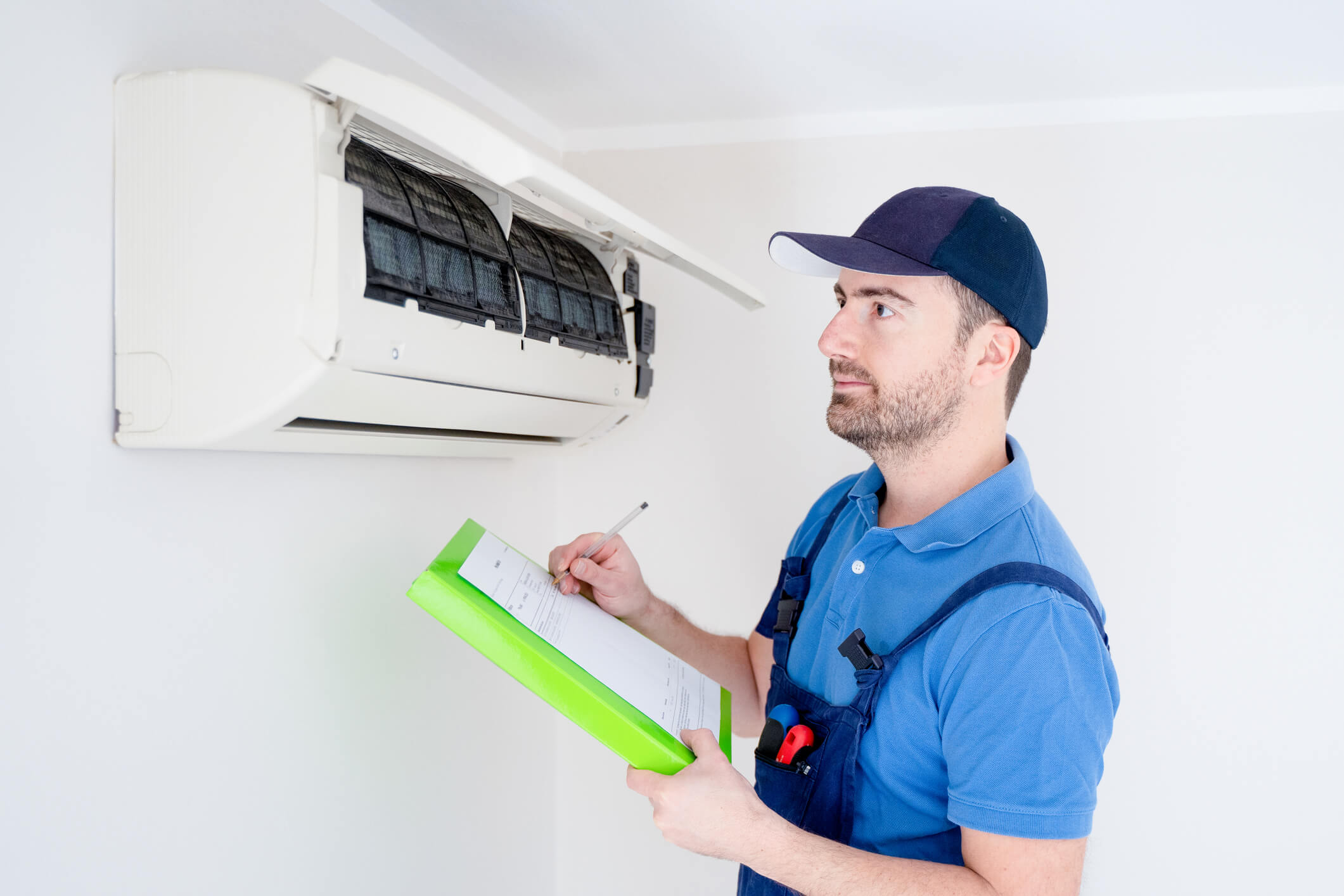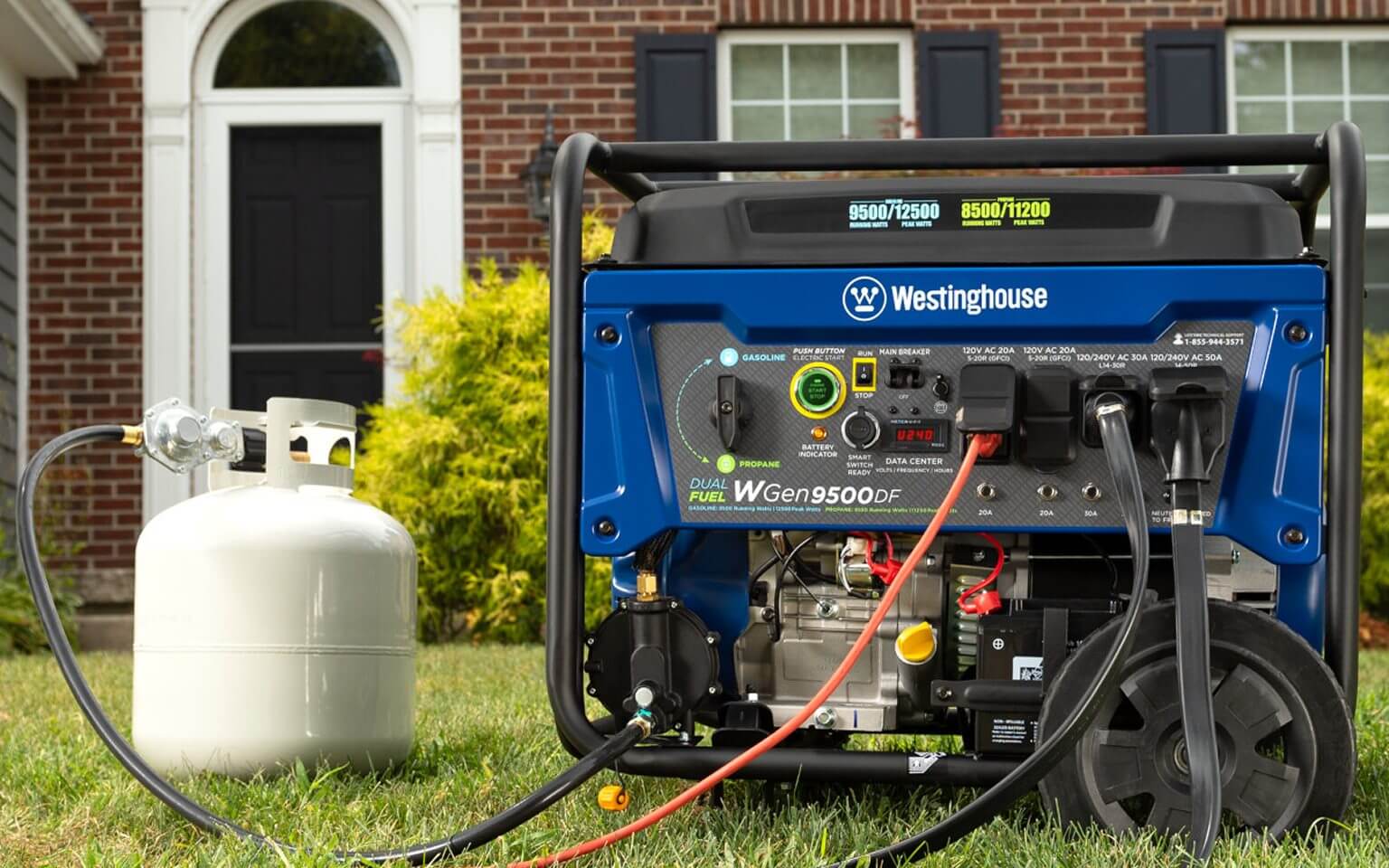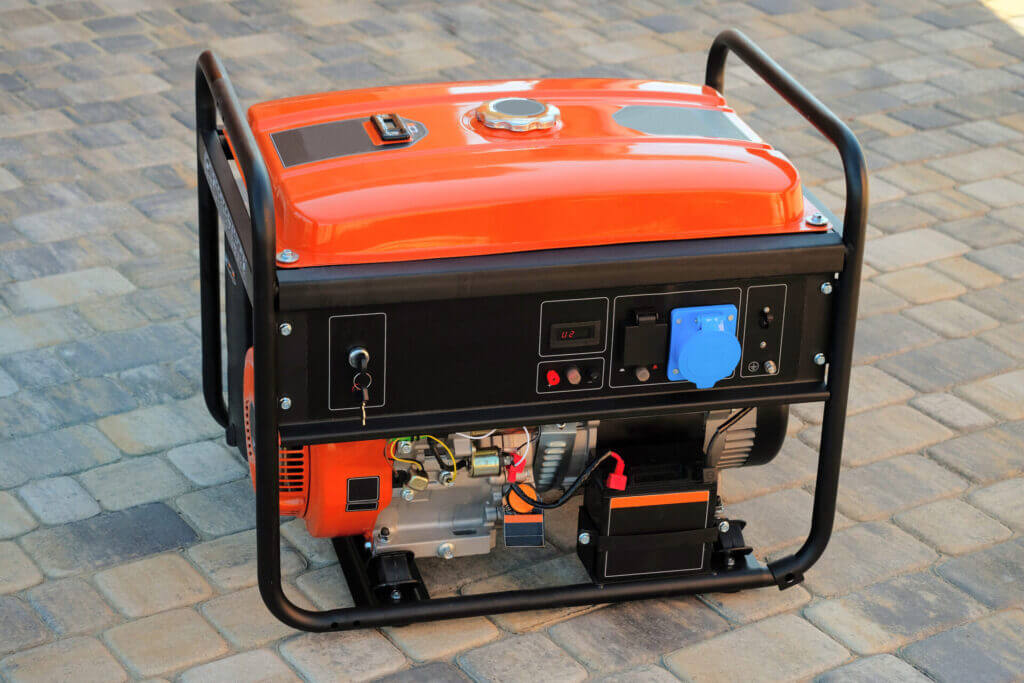Are you doing a solar project?
Modernize can pair you with three to four pros in your area, so you can compare options and save time and money.
By now, you probably know that hot water heating eats up a big part of your energy budget. In fact, the Department of Energy pegs that number at around 17 percent of a home’s energy expenses—that’s a huge chunk of your utility spending.
So how can you get a unit that won’t bulk up your bills? Well, you could start by opting for a more efficient water heater. But that probably won’t earn you the significant reduction that you’d get with a solar-powered unit. Just to really hammer it home, the DOE estimates that a solar unit could cut water heating expenses by 50 to 80 percent, easily netting you an extra $100 to $200 or so per month.
Heating your water with the sun may sound a little crunchy-granola, but you don’t have to live in a commune to appreciate the benefits of solar-powered units. Active heating systems, like direct and indirect circulation units, have attached pumps that funnel heated water into homes, which makes them much more efficient—and modern—than a passive collection system.
Solar water heating does come with some special climate concerns, particularly for those homes located in colder regions. Most collection units rely on pipes similar to your home’s plumbing system, which can freeze when temperatures plummet. Of course, it wouldn’t do you much good if you could only take a hot shower in the summer, so hot water manufacturers have come up with design features to keep systems from freezing.
From the type of collector you use, to the design of your storage tank and system, there are many ways to keep solar water heaters warm. Let’s take a look at some of those options so you can make your decision to switch to solar water heating an informed one.
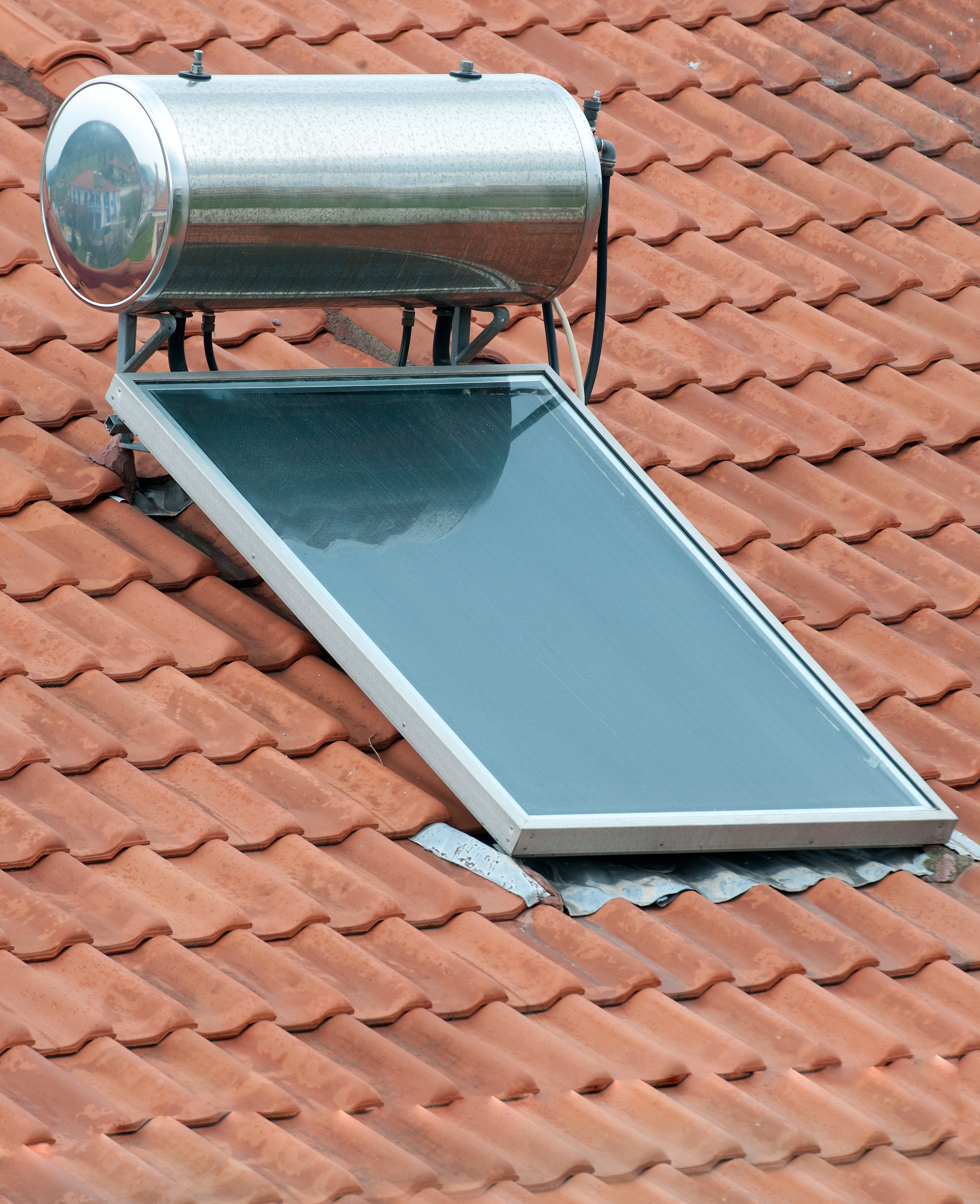
How Cold Is Too Cold?
Can you really heat your water with the sun when it’s freezing outside? The Cold Climate Housing Research Center insists that solar thermal makes for an effective water heating method for homes in the Arctic, so even if you’re reading this from the North Pole, a solar hot water system can be a helpful energy-saving alternative—as long as you go with the right kind of equipment.
If you live in an area with more than one or two hard frosts a year, count yourself in on this one. Your system will need some special accommodations to reduce freezing and burst pipes. Here’s a rundown of those.
Active Closed Loop Systems: Heating with Antifreeze
Your first option for a cold-region solar hot water heater is what’s known as an active closed loop system. In this kind of unit, water is actively circulated into the home using an electric or solar-powered pump, and allowed to warm up in a dark-colored flat plate collector that’s designed to optimize sunlight.
Also in the mix is a non-toxic antifreeze solution, usually made out of polypropylene glycol. Polypropylene glycol has a much lower freezing point than water, but is still a lot safer than ethylene glycol, the poisonous type of antifreeze used in many cars. Pumping this solution through the pipes keeps them from freezing and prevents burst pipes, as well.
Find the Right Contractor for Your Solar Project
Whether you’re ready to begin your project now or need some expert advice, our network of contractors are here to help. With a few simple questions, we’ll find the best local professionals for you
Drainback Systems: Perfect for Bitter Cold
Unfortunately, antifreeze isn’t a perfect solution—particularly in places where temperatures drop into the negatives. Because the polypropylene glycol is mixed with such a high proportion of water, it’s much more diluted and, consequently, less potent.
Passive and active drainback systems have shut-off controls that either manually or automatically drain water and antifreeze out of the collectors. That means when temperatures go down past the freezing point, there’s no danger that water will freeze in the tanks.
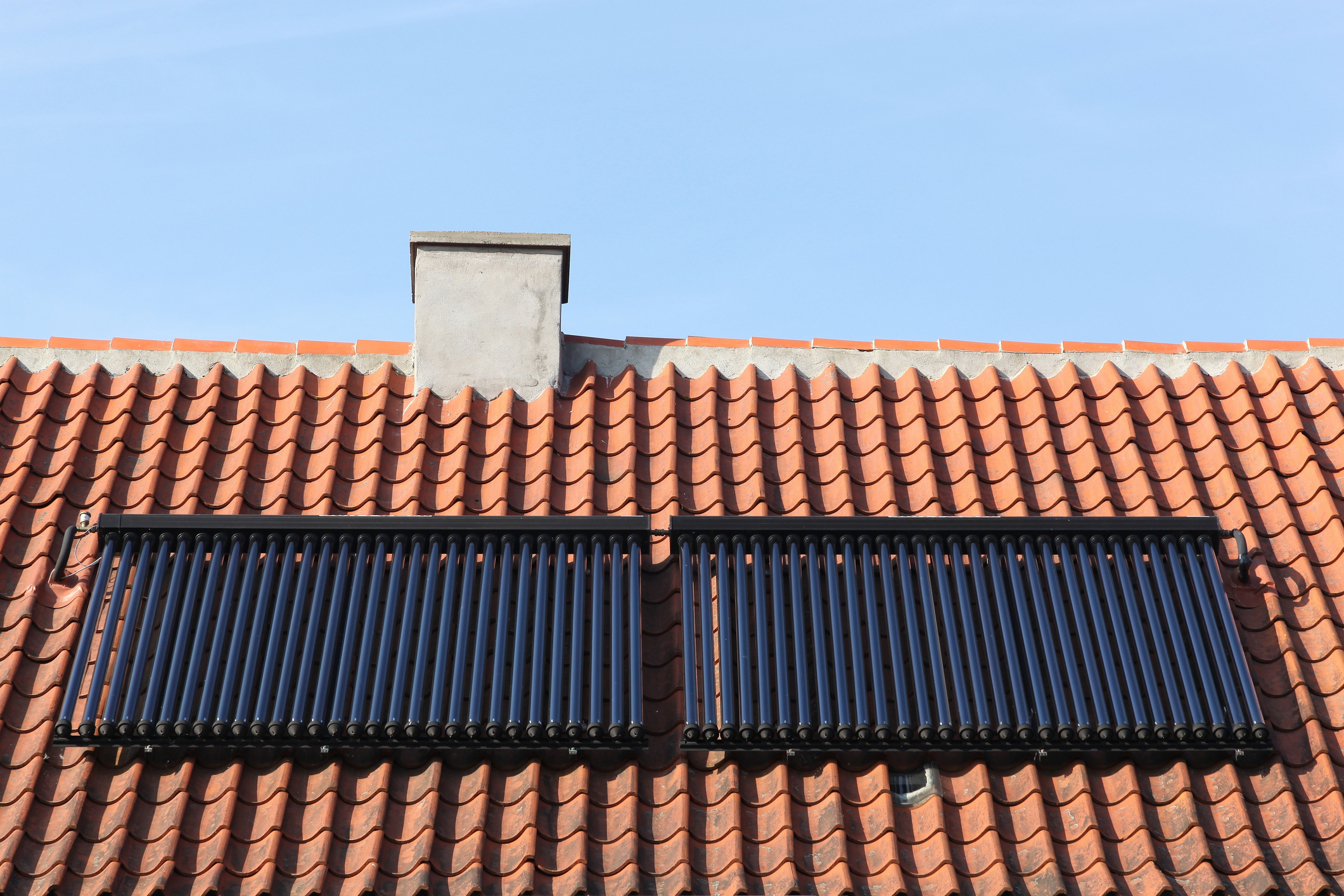
Evacuated Tubes: Protecting Water Collectors
Solar hot water heater systems have a part known as a collector, where water is allowed to absorb the sun’s heat before it makes its way back into a storage tank for use in your home. The most popular way of accomplishing this is through a flat plate collector, where water sits in an insulated box above a specially-coated absorber plate.
Evacuated tube collectors, on the other hand, contain a network of glass tubes—each one surrounding a smaller copper tube that’s filled with heat transfer fluid. When the sun strikes the tube, it boils the fluid, which heats the water on the outside. This method greatly reduces heat losses that can occur in plate collectors, which can keep your unit running smoothly in sub-zero weather.
Thermosyphon Systems: Keeping Storage Indoors
Looking for more ways to keep your system going in colder weather? A thermosyphon system is another option. In these systems, the storage tank of heated water is installed indoors, rather than on a home’s exteriors. Heated water therefore stays warmer than it might if the storage tank were positioned outdoors. However, most thermosyphon units are passive, meaning they use gravity to move water through the system, rather than relying on a pump.
It’s important to note that many of these freeze-protection measures can be combined in the same system. For instance, you can definitely pair a closed loop system with an evacuated tube collector. Your water heater salesperson should be able to walk you through the available features, and help you understand which ones are right for your area.
All in all, the idea of heating your water with sunlight is pretty darn cool. It definitely brings new meaning to the phrase “sun showers.”
Find the Right Contractor for Your Solar Project
Whether you’re ready to begin your project now or need some expert advice, our network of contractors are here to help. With a few simple questions, we’ll find the best local professionals for you
Reviews from Real Homeowners
Welcome to Homeowner Resources! We are the Modernize blog. Modernize pairs more than 3 million homeowners a year with pre-vetted contractors in their area. This blog started because we believe homeowners should know everything about their homes, from how their HVAC works to which front door colors they might love. On Homeowner Resources, you can find information on every part of your home, right down to how you can negotiate with contractors to get the best price. Here's more about the blog.
Need a contractor? Learn more about how Modernize finds the right pro for you.
